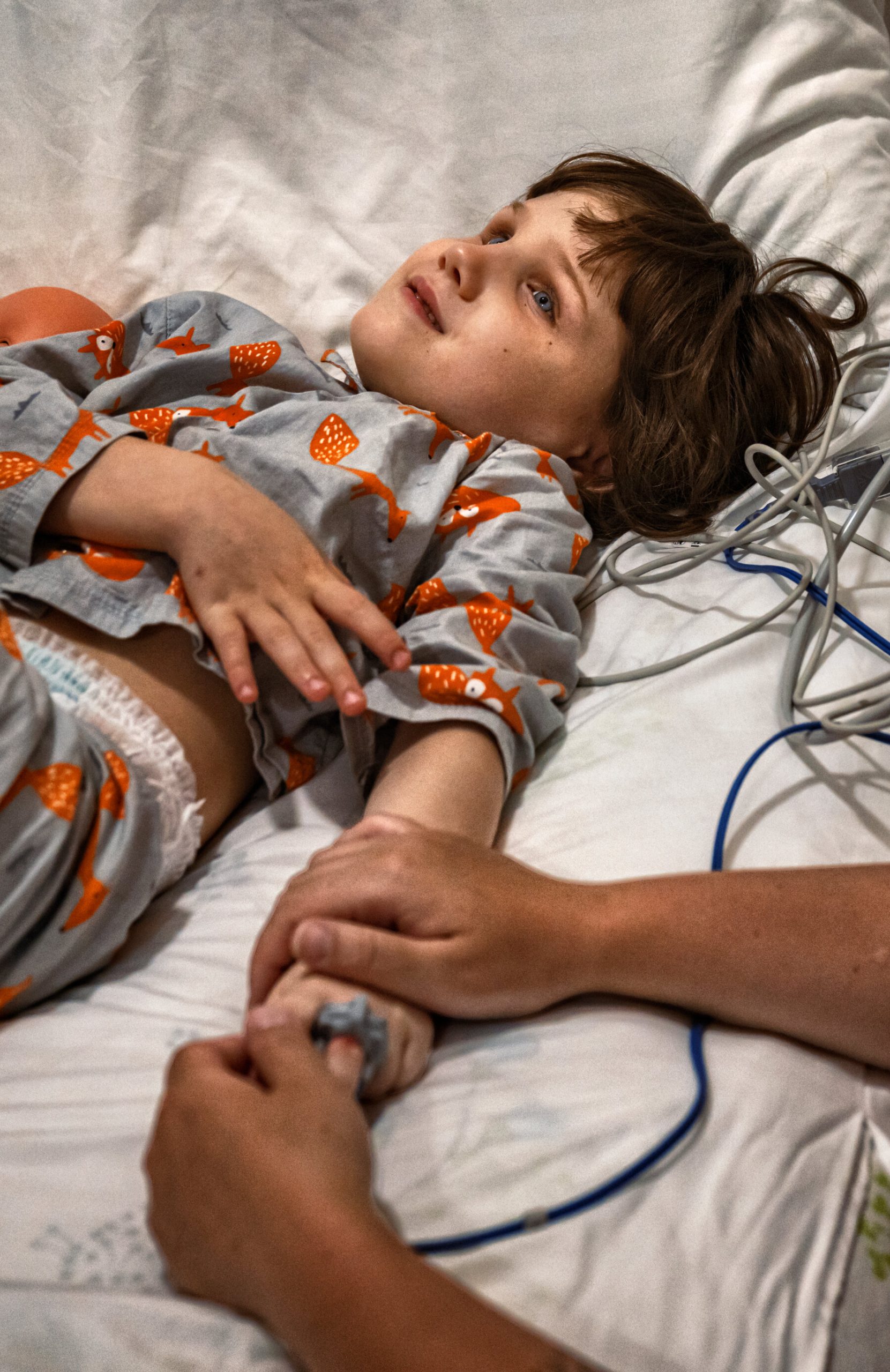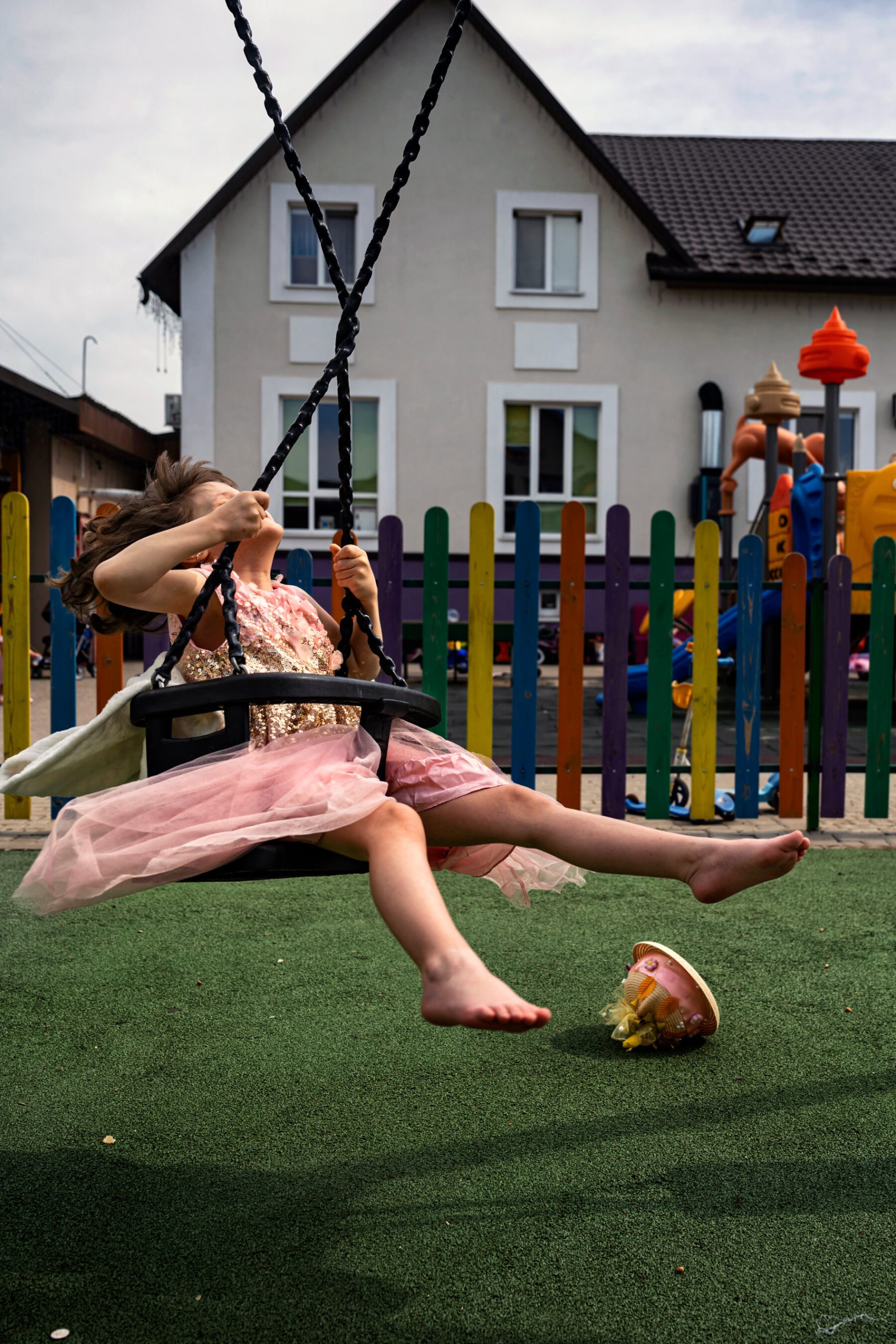
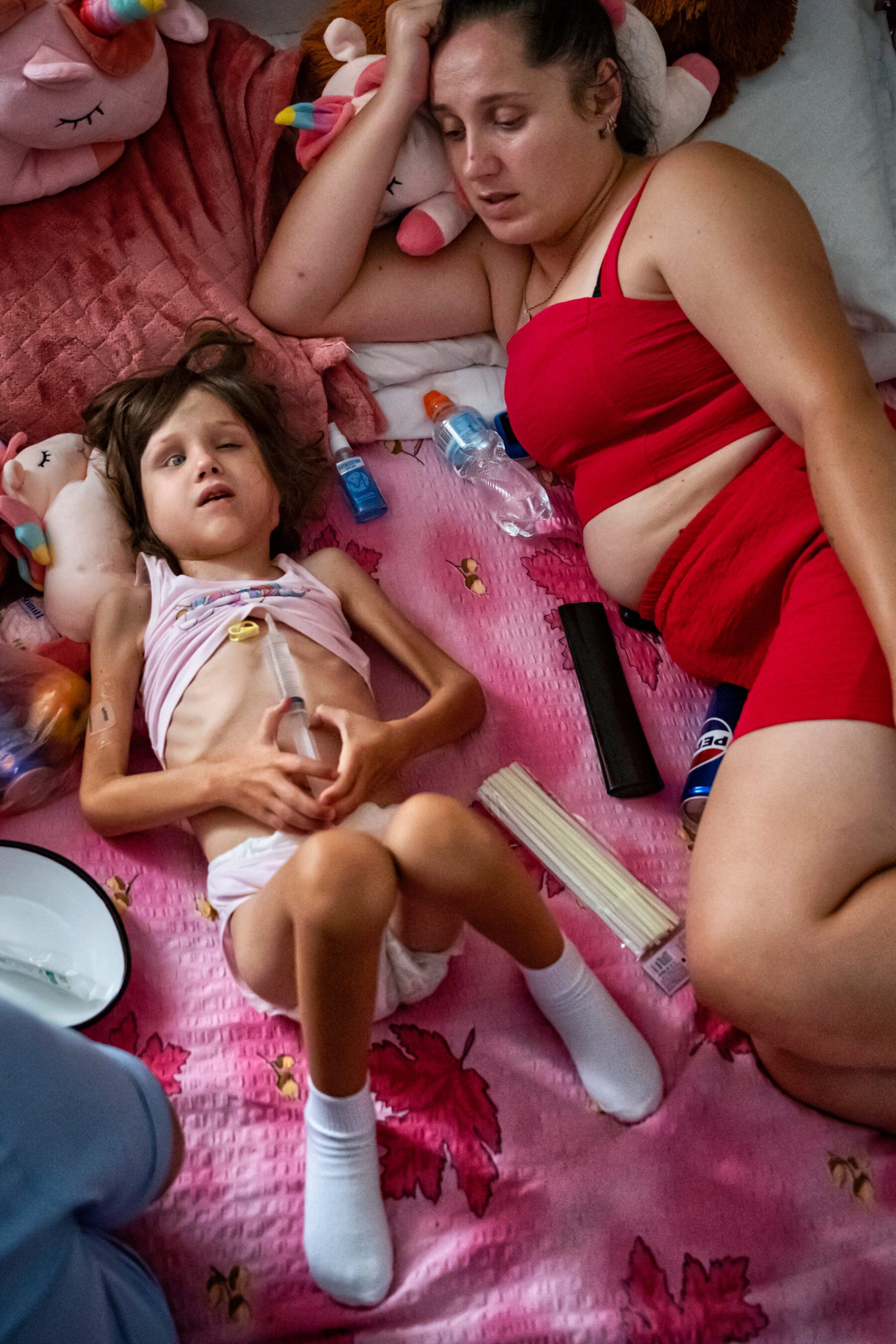
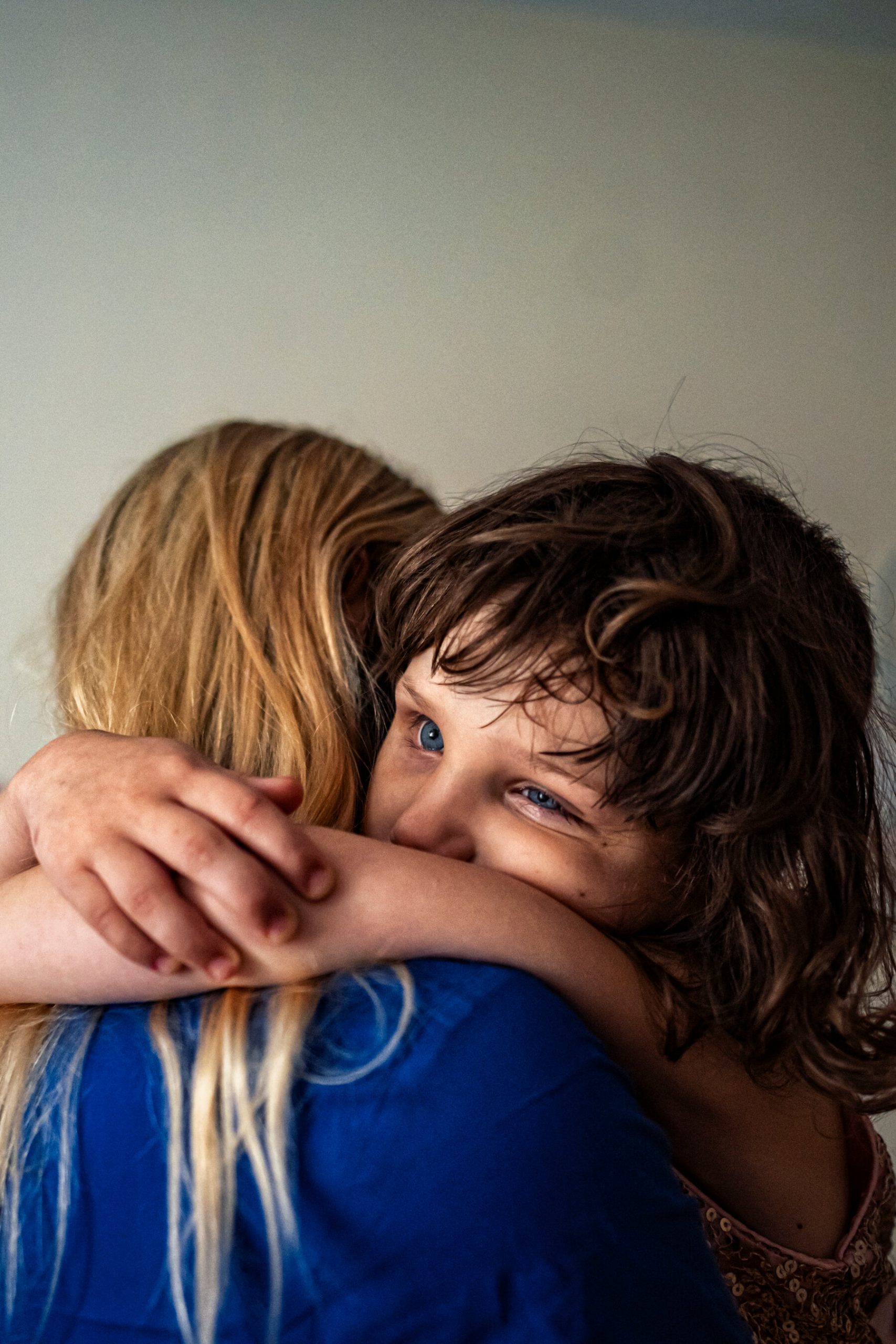
Sonya Liakh was 2 years old when she was diagnosed with a rare form of eye cancer.
Russia’s invasion of Ukraine interrupted her chemotherapy.
The lapse in treatment allowed the cancer to spread. Soon new tumors emerged. Sonya lost both her eyes.
Ukrainian children with long-term illnesses and severe disabilities are among the war’s most overlooked victims.
The War in Darkness
Splayed out on a pink bedspread, wearing a pink tank top and surrounded by stuffed pink unicorns, 6-year-old Sonya Liakh unscrewed the port to the catheter in her chest. She took a pre-filled syringe of morphine from the tray held by the nurse beside her, deftly inserted the syringe into her port, and pushed the contents into her jugular vein.
Her medication was one of the few things Sonya could still control. Russia’s invasion had uprooted her life, as it had so many lives in Ukraine. It had killed her father at the front line and dealt a debilitating blow to her health, delaying her chemotherapy and allowing a rare form of cancer to rob her of her vision and ravage her body.
And so, this past spring, as the cancer spread from her eyes to the rest of her head and then to her back, mouth and neck — and as the subtle lumps grew more pronounced — Sonya insisted on injecting herself.
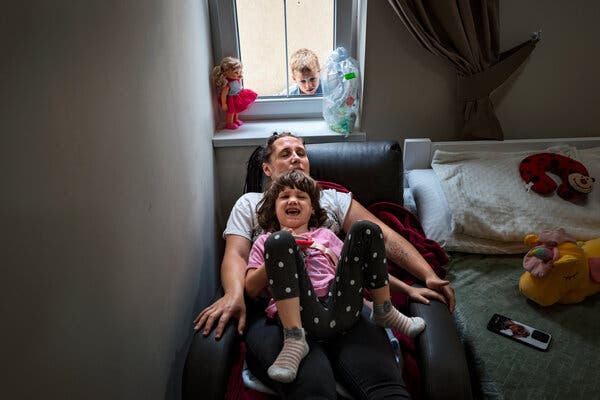
The daunting health challenges facing sick and disabled children in Ukraine are a cruel reminder that the war’s tentacles stretch far beyond the front line. They have suffered from misdiagnoses, lapses in treatment, a lack of access to specialized food and physical therapy, displacement and the unrelenting stress of war.
